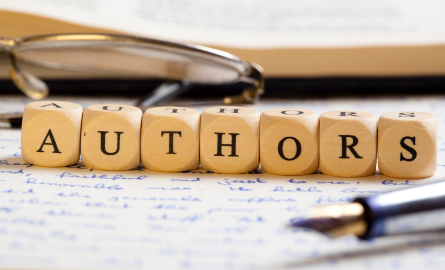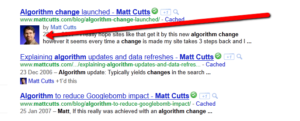PR Agencies: How sharing Press Releases can decrease your own and your client’s google ranking
20 September 2011 By Northern Lights

 PR agencies that share news bulletins and press releases online on behalf of clients could potentially be doing more harm than good. Recent developments in Google’s SEO ranking strategy (which aims to ensure more credible sources rank higher) mean that PR agencies who don’t keep up to date with SEO could fall foul of Google’s negative scoring for ‘duplicate content’.
PR agencies that share news bulletins and press releases online on behalf of clients could potentially be doing more harm than good. Recent developments in Google’s SEO ranking strategy (which aims to ensure more credible sources rank higher) mean that PR agencies who don’t keep up to date with SEO could fall foul of Google’s negative scoring for ‘duplicate content’.
Sharing ideas is what the web was designed for. But with so much content out there, how do we know what is correct and whether the writer is credible? Google has taken on the challenge of building author credibility into their SEO rankings system, so we can be sure who has created content and know that it is credible.

They have done this by scoring websites on their “author tags”, AKA Google’s rel=”author” mark-up. Authorship mark-up is coding that connects authors with content they have written, so that Google can tell which is the true source of an article and which is copied and re-posted. The true author scores higher in Google rankings.
This sounds like a great idea. But what about the case of PR agencies who compile articles for clients and post them on both the client’s website and their own? By re-posting to a wider audience, you would think that the article would be shared more widely and thus score more highly with Google. But in fact, it could lead to Google scoring both websites down for duplicate content, as it doesn’t know who is the true author and assumes both sets of content to be spam.
There have been cases of certain brands posting duplicate content on numerous fake sites, all pointing back to the original site, in order to improve their search engine rankings. If Google determines that you’re using tactics to distort your place in rankings, they may issue a Google penalty. This is essentially a temporary (or in some cases, permanent) ban on ranking at all. Google penalties have a catastrophic effect on your SEO efforts, and take a lot of time, effort and hard work to put right.
While PR agencies won’t get a Google penalty just for posting press releases on more than one website, this is one of many tactics that impacts negatively on a sites overall Google rankings score. So you could be doing your clients more harm than good in terms of their SEO. However, with a little knowledge on how search engine optimisation works, and the correct authorship coding in place, you can ensure that Google knows who the correct author is, and credits them accordingly.
This discussion arose in a recent conversation with Northern Lights PR. We talked the issues of authorship where Press Releases are concerned. Although most PR agencies would probably like to be accredited with authorship of a press release, we came to the conclusion that the authorship should really be accredited to whomever is quoted in the press release as it’s their name that is being used. As a standard of good practice, Northern Lights PR will therefore be assigning the authorship tag for all their press releases to their individual clients. This will let Google know that the content is credible and will result in their clients’ websites ranking higher in Google searches. If set up correctly, linking back to a client’s individual Google+ profile with a good quality profile picture, a photo of their client will also appear in Google search results. This will give clients huge advantages in terms of both online and offline networking and profile building.
Other PR agencies should consider implementing this as standard to ensure the best results for their clients. The system works for both press releases and guest blog posts, where the author may not necessarily be the site owner.

Here’s how to do it:
1. First of all, make sure that individual authors have an up-to-date Google+ Profile with a great quality profile picture. You can see how the profile information may show up in Google search results here:

2. Secondly, make sure that all Author Profile/About Me pages on your website are up to date, with good quality photos.
3. Then you need to ensure that your press releases and blog posts are linked to the relevant author page using the tag rel=”author”. For example:
Victoria Tomlinson
4. You now need to link you author page to you Google + profile using the rel=”me” tag. For example:
About Victoria Tomlinson
5. Now everything is set up, make a link to your websites author page from your Google + Profile. You will need to add a link to your author page in the Links section of your Google+ about page, making sure you check the box: “this page is specifically about me”. This stage is crucial as it tells Google that the true author has confirmed they wrote the article, assigning author credibility and increasing the Google rankings score for that particular article.
It’s important to note that on the Northern Lights PR website all Press Releases will link to an author page on the Northern Lights PR website, the author page will be a page about the author of that particular Press Release, i.e. their clients. That in turn will link to their clients G+ profile. The same implementation will be recommended on their clients site, this tells Google both articles are by the same author and neither will be penalised.
If your website has more than one author, it’s vital to ensure that the author of each individual article is identified, because Google checks for connections between content, a Google+ profile and an author page/profile on your website. When verifying authorship of content (whether it’s a blog post, an article or a press release) Google looks for the following things:
- Links connecting the page of content to the author page
- Links connecting your author page to your Google + profile
- A path of links from your Google+ Profile back to your author page
These reciprocal links are the tools you can use to make sure that you get the credit for all the online content that you’ve written. They also protect you from someone else attributing content that you haven’t written to you as an author. The reciprocal link back ensures that you are the true author and not impersonating someone else.
This guest article was submitted by Jonny Ross from Jonny Ross Consultancy. Jonny specialises in Web Design, SEO and Social Media. Having worked in small business management for over 13 years, he has a proven track record in the retail field and has created a very successful operation in the field of e-business, culminating in positive coverage by the press and the media. He now specialises in providing digital services in the business to business sector.
“I hope you found this post interesting. I’ve tried to keep it simple, but if you would like some more information, there’s a more detailed post on my blog. I highly recommend you implement “rel=author” on your own websites, and those of your clients. You will ensure they maximise their SEO potential, protect their content, and potentially get their photo in Google search results. I’d be really interested to hear your thoughts and comments on this, so please comment and give feedback below. If you enjoyed this article, please share it with colleagues and friends.”
